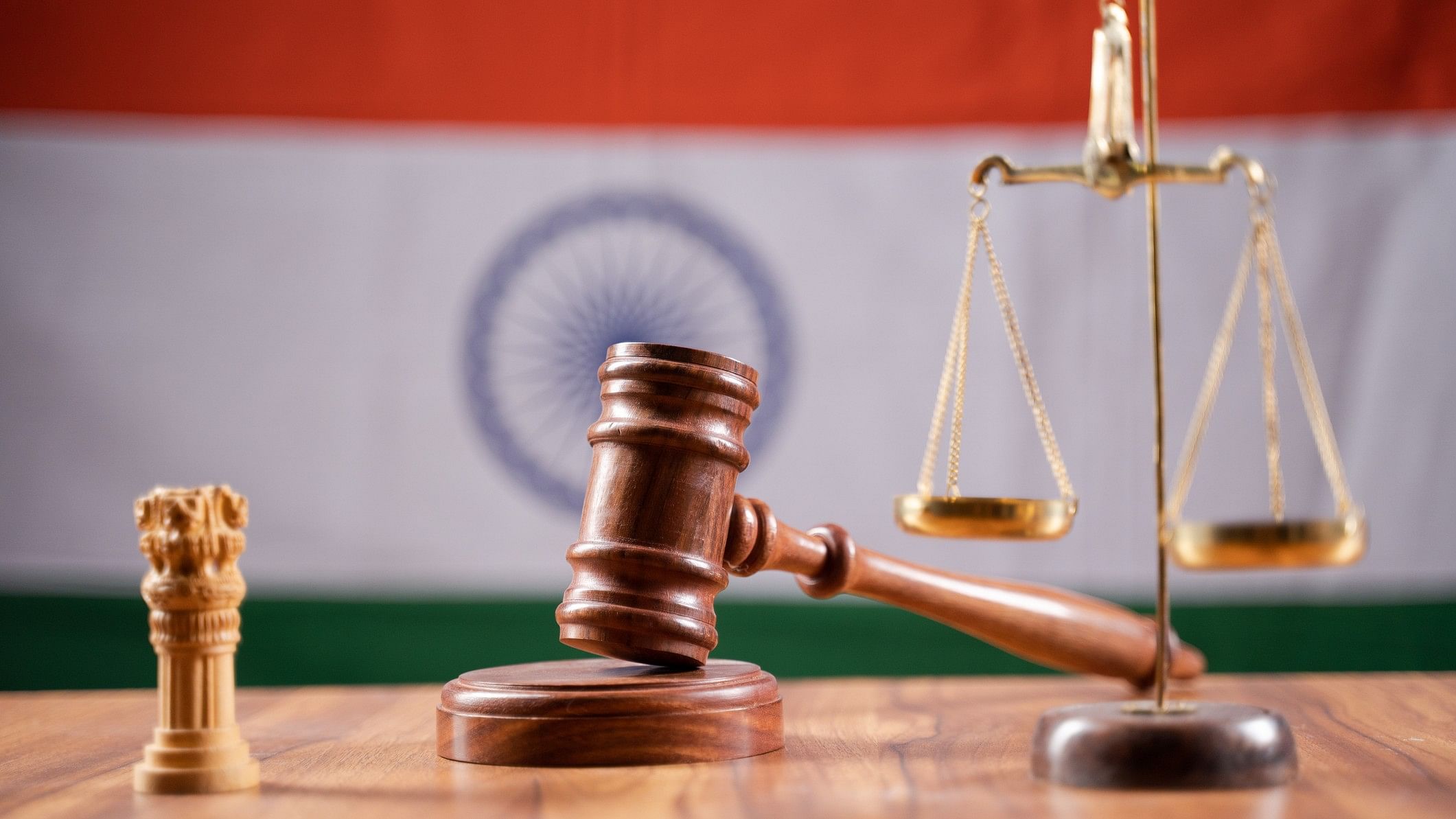
Representative image showing gavel and scales against the backdrop of India's flag denoting the nation's legal system.
Credit: iStock Photo
A judge will have to give a verdict in a case within 30 days of completion of arguments in a trial court, the new Bill to replace the Code of Criminal Procedure (CrPC) proposes, with an eye on speedy justice delivery and clearing the backlog of cases.
The Bharatiya Nagarik Suraksha Bill, 2023 introduced in Lok Sabha on Friday also has provisions to ensure that parties do not adopt delaying tactics by seeking frequent adjournments, which includes limiting the seeking of adjournments by lawyers to two times, not considering the presence of lawyer in another court as a ground for adjournment and the court recording a witness statement when a lawyer is unwilling to cross-examine a witness.
The Bill also mandates that the chargesheets will have to be filed within 90 days and it could be extended only by another 90 days, while the framing of charges will have to be done in 60 days.
According to Section 258 of the new Bill, the judge should give a judgement in a case, as soon as possible, within a period of thirty days from the date of completion of arguments. However, this could be extended to 60 days for "specific reasons.
On lawyers seeking adjournments, the Bill says no adjournment shall be granted at the request of a party, except where the circumstances are beyond the control of that party and "where the circumstances are beyond the control of a party, not more than two adjournments may be granted by the Court after hearing the objections of the other party and for the reasons to be recorded in writing".
"The fact that the advocate of a party is engaged in another Court, shall not be a ground for adjournment; where a witness is present in Court but a party or his advocate is not present or the party or his advocate though present in Court, is not ready to examine or cross-examine the witness, the Court may, if thinks fit, record the statement of the witness and pass such orders as it thinks fit dispensing with the examination-in-chief or cross-examination of the witness, as the case may be," it said.
